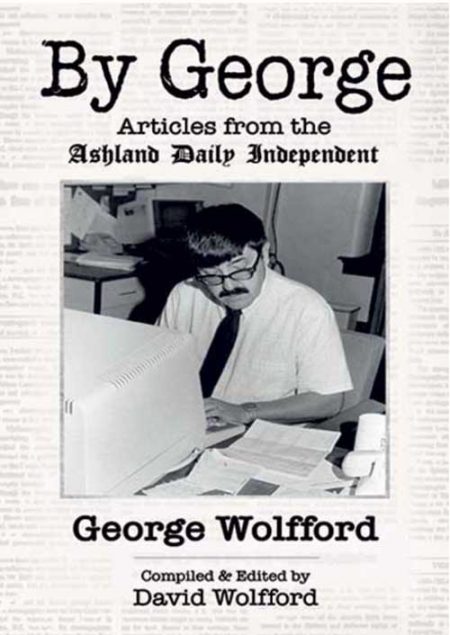-
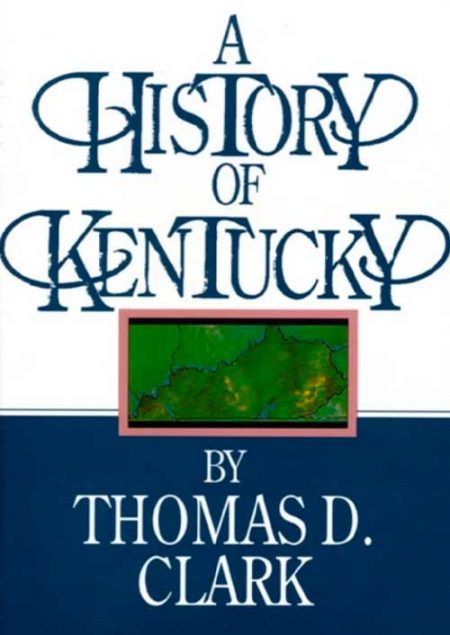 Kentucky’s history is an important part of American development because the state lay directly in the path of the great westward movement. It was in Kentucky that the early adjustments to the rigors of frontier life were made. Along the Kentucky River, Daniel Boone and a small band of settlers repulsed British and Indian thrusts to guard the back door of the struggling young nation during the Revolution. Under George Rogers Clark, the Kentuckians even carried the fight to British and Indian concentrations along the Ohio. HARDBACK By Thomas D. Clark
Kentucky’s history is an important part of American development because the state lay directly in the path of the great westward movement. It was in Kentucky that the early adjustments to the rigors of frontier life were made. Along the Kentucky River, Daniel Boone and a small band of settlers repulsed British and Indian thrusts to guard the back door of the struggling young nation during the Revolution. Under George Rogers Clark, the Kentuckians even carried the fight to British and Indian concentrations along the Ohio. HARDBACK By Thomas D. Clark -
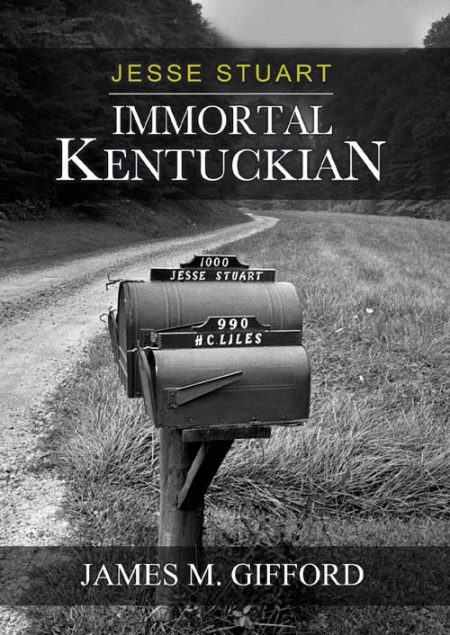 This book examines Jesse Stuart's life in a broad historical context and shares his enduring legacy through his broad range of accomplishments as an author, educator, conservationist, spokesman for Kentucky and Appalachia, compulsive correspondent, world traveler, father, husband, and community-minded neighbor. In a broad historical context, it shows how Stuart has immortalized himself through personal relationships as well as through people who read his books. SOFTBACK & HARDBACK By James. M. Gifford
This book examines Jesse Stuart's life in a broad historical context and shares his enduring legacy through his broad range of accomplishments as an author, educator, conservationist, spokesman for Kentucky and Appalachia, compulsive correspondent, world traveler, father, husband, and community-minded neighbor. In a broad historical context, it shows how Stuart has immortalized himself through personal relationships as well as through people who read his books. SOFTBACK & HARDBACK By James. M. Gifford -
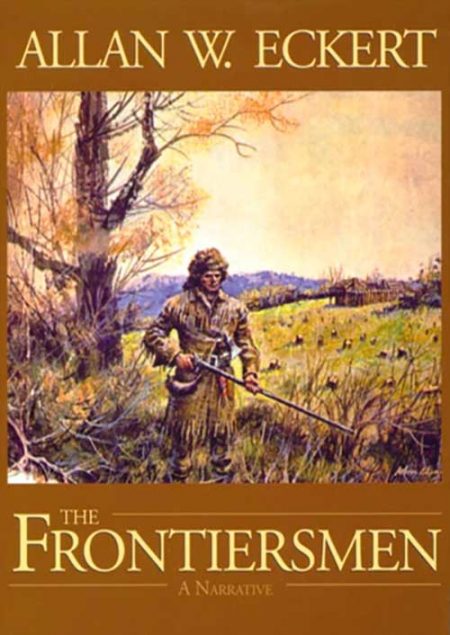 The Winning of America Series: Book 1 of 6 The frontiersmen were a remarkable breed of men. They were often rough and illiterate, sometimes brutal and vicious, often seeking an escape in the wilderness of mid-America from crimes committed back east. In the beautiful but deadly country which would one day come to be known as West Virginia, Kentucky, Michigan, Ohio, Indiana, and Illinois, more often than not they left their bones to bleach beside forest paths or on the banks of the Ohio River, victims of Indians who claimed the vast virgin territory and strove to turn back the growing tide of whites. These frontiersmen are the subjects of Allan W. Eckert's dramatic history. Researched for seven years, The Frontiersmen is the first in Eckert's "The Winning of America" series. SOFTBACK & HARDBACK By Allan Eckert
The Winning of America Series: Book 1 of 6 The frontiersmen were a remarkable breed of men. They were often rough and illiterate, sometimes brutal and vicious, often seeking an escape in the wilderness of mid-America from crimes committed back east. In the beautiful but deadly country which would one day come to be known as West Virginia, Kentucky, Michigan, Ohio, Indiana, and Illinois, more often than not they left their bones to bleach beside forest paths or on the banks of the Ohio River, victims of Indians who claimed the vast virgin territory and strove to turn back the growing tide of whites. These frontiersmen are the subjects of Allan W. Eckert's dramatic history. Researched for seven years, The Frontiersmen is the first in Eckert's "The Winning of America" series. SOFTBACK & HARDBACK By Allan Eckert -
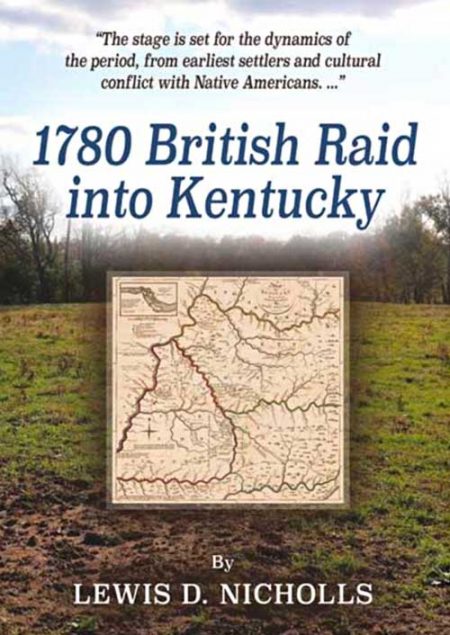 In 1780, the British launched a raid into Kentucky led by Captain Henry Bird to assist the Native Americans to reclaim their hunting grounds from white settlers. The raid targeted Kentucky's Ruddell's Fort and Martin's Station and captured approximately 350 white settlers comprised of men, women, and children. On June 26, 1780, the British and Native Americans marched the captives to Detroit on a 50-day march under brutal conditions, killing several of them along the way. The British marched 129 of these settlers, who were eventually released after the war of escaped. The remaining settlers held by the Native Americans were sold into slavery, adopted into a tribe, sold or eventually released. SOFTBACK VERSION Lewis D. Nicholls
In 1780, the British launched a raid into Kentucky led by Captain Henry Bird to assist the Native Americans to reclaim their hunting grounds from white settlers. The raid targeted Kentucky's Ruddell's Fort and Martin's Station and captured approximately 350 white settlers comprised of men, women, and children. On June 26, 1780, the British and Native Americans marched the captives to Detroit on a 50-day march under brutal conditions, killing several of them along the way. The British marched 129 of these settlers, who were eventually released after the war of escaped. The remaining settlers held by the Native Americans were sold into slavery, adopted into a tribe, sold or eventually released. SOFTBACK VERSION Lewis D. Nicholls -
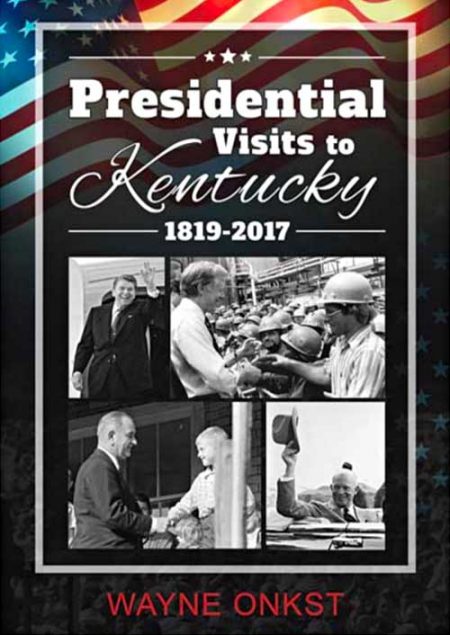 Presidents have been visiting Kentucky since 1819 arriving by horseback, carriage, train, steamboat, bus, and airplane. Presidential Visits to Kentucky: 1819-2017 details more than 120 occasions when the President of the United States came to the Commonwealth. It chronicles when the president came, why, where he went, and who he saw as he made history. HARDBACK VERSION By Wayne Onkst
Presidents have been visiting Kentucky since 1819 arriving by horseback, carriage, train, steamboat, bus, and airplane. Presidential Visits to Kentucky: 1819-2017 details more than 120 occasions when the President of the United States came to the Commonwealth. It chronicles when the president came, why, where he went, and who he saw as he made history. HARDBACK VERSION By Wayne Onkst -
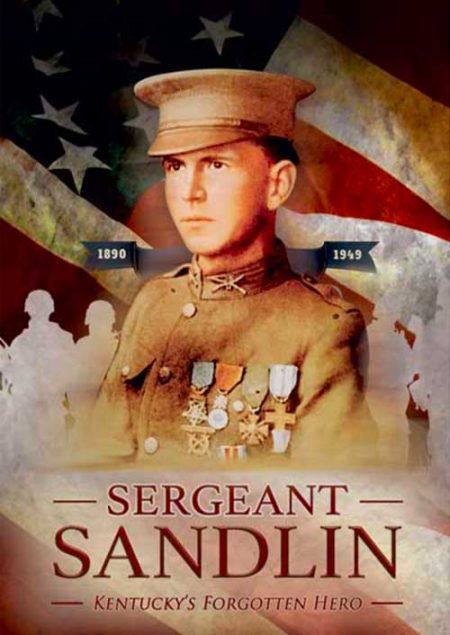 On September 26, 1918, during the devastating Battle of the Meuse-Argonne Forest, Kentucky native Willie Sandlin, acting alone, attacked and disabled three German machine gun nests and killed all twenty-four occupants. During the day’s fighting, Sandlin “voluntarily and deliberately” raced forward into dangers so great that he could hardly hope to survive. For his “conspicuous gallantry and intrepidity above and beyond the call of duty,” Sandlin received the Medal of Honor, which was presented to him by General John J. Pershing before Sandlin returned to America at the end of the war. HARDBACK VERSION FULL COLOR INTERIOR By James M. Gifford
On September 26, 1918, during the devastating Battle of the Meuse-Argonne Forest, Kentucky native Willie Sandlin, acting alone, attacked and disabled three German machine gun nests and killed all twenty-four occupants. During the day’s fighting, Sandlin “voluntarily and deliberately” raced forward into dangers so great that he could hardly hope to survive. For his “conspicuous gallantry and intrepidity above and beyond the call of duty,” Sandlin received the Medal of Honor, which was presented to him by General John J. Pershing before Sandlin returned to America at the end of the war. HARDBACK VERSION FULL COLOR INTERIOR By James M. Gifford


